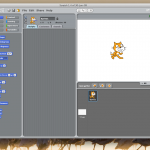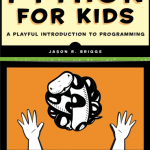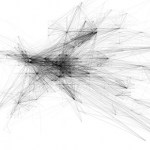The Bottleneck Years
by H.E. Taylor
Chapter 17
Table of Contents
Chapter 19
Chapter 18
Amazon, Sept. 29, 2055
Have you ever wondered what is the logic of your life? Sometimes I feel like a piece of flotsam bouncing on the waves of a river whose depth and currents I cannot fathom, whose path I do not know, whose destination, short of the ocean, is a mystery.
This feeling caught me as I contemplated Olivia. It was equally true of the happy accident that I just happened to notice the odd red-green plant years before when Doc Y and I were on a sampling tour in the B.C. interior. I got my…
Technology
"This one will look like a jellybean," the session director warns us. "Or, you know, when you empty a hole punch? The circles of paper that fall out? One of those." She's talking about Neptune, and I am about to step, carefully, up a ladder painted industrial yellow and wheeled into place in front of the centenarian eyepiece of the 60" Hale telescope at Mt. Wilson Observatory, incidentally the very place where Edwin Hubble, in 1925, discovered that our galaxy was not the entirety of the Universe, and later, that our Universe was expanding.
A jellybean, a piece of confetti: it seems her…
Super Scratch Programming Adventure!: Learn to Program By Making Cool Games is a book designed for the youngest kids who can read comics and basic text who want to learn to program. The prgramming environment, Scratch, will be familiar to those who have experimented with Logo and Squeak. Especially Squeak. Scratch is a very easily installed environment. You just download it and run it, more or less (instructions provided). When installed, it looks like this:
The upper left box allows you to chose categories of property and methods sets, such as motion, looks, sensing, etc. The list-like…
My first computer language was PL/1, but soon after I learned, among other languages, Basic, and I really liked Basic and I still do. Basic is linear, and I think in linear constructs when I do any kind of computer program. This is probably, in part, because user interfaces are the last thing I want to deal with. I want a series of numbers to be treated in a certain way, or a set of formulas to generate a database. The most non-linear I tend to get is multidimensional arrays, and that's still linear.
Python is potentially, and in practice, very different, and is essentially used as an…
A wild GNU was spotted at some sort of event organized by a computer company named "Microsoft" which was launching a new version of its operating system. The GNU, accompanied by some friends carrying literature related to the widely used Unix-like operating system, GNU/Linux, did not cause any damage or harm to the attendees, but is it reported that later in the evening several Windows using people took out their old hardware, the hardware that would no longer run on Windows, and installed the GNU/Linux system so they would have a computer that worked just in case the new "Windows Bites" (…
Are you interested in software usability and open source? If so, my friend Jim would like your help. He is doing a study of usability in Open Source software. I'll post his entire request below along with a link to his blog. Also, he'll probably be doing some other interent based interolocution about this; I'll pass on to you whatever he passes on to me.
Here's the thing. Jim has been involved in Open Source software for a long time, and is the creator of FreeDOS, and it doesn't get much geekier than that. (I think the FreeDOS developers manual may be written in a dialect of Klingon.)…
RIP Ubuntu. Ubuntu was great. For years, I kept trying to get my own Linux box up and running, initially so I could relive the halcyon days of UNIX and later so I could avoid Windows. But every time I tried to get Linux working some key thing would not be configurable or would not work. Well, I'm sure it was configurable and could work but configuring it and making it work was beyond me. Those were also the days when what little support was available on the Internet was limited mostly to the sort of geeks who prefer to give answers that are harder to parse than one's original problem. In…
Apple, Microsoft, Dell, IBM, Google, all of them ... the companies that make the hardware and software we use ... are, it would seem, ignorant, probably willfully so, of an important thing. We use their hardware and software in our work. Many individuals are like miniature institutions or corporations. Our HR department, our payroll department, our accounting department, our R&D department, our car pool, and everything consists of a handful of machines (a car, a desktop, a mobile device, a printer) and a single person to staff them all (you, me, whatever). We do quite a bit to…
When I look at the Atari Arcade, I get a bunch of gobbledygook but if I click on individual links to individual games, I get an interesting experiment in HTML 5.0 demonstrating old fashioned character-based-graphic style games. Here are the links, but I suggest right-clicking and opening in a new window or tab so you can more cleanly shut them down if you get stuck. In other words, attempting to use the most advanced web-based programming language/markup tool to emulate ancient games is kind of like Dr. Who crossing his own time line and all sorts of bad things can happen.
The Atari Arcade…
My friend Adria Richards on why you should learn to code:
More details, especially if you are a girl, here.
Books mentioned in the video:
Learn to Program, Second Edition (The Facets of Ruby Series)
The Book of Ruby: A Hands-On Guide for the Adventurous
Eloquent Ruby (Addison-Wesley Professional Ruby Series)
Design for Hackers: Reverse Engineering Beauty
I love the iPad, but it is not really suitable for young kids, because it requires an adult perspective on life to operate it correctly. For example, for a two year old, there is nothing more fun than figuring out how to make all the little icons dance, and once you do that, there is nothing more fun than making them disappear one by one by clicking on the little X's. The iPad would benefit greatly with a kiosk mode.
So, as Christmas comes and no matter what your culture or belief system you being to search for presents to give the little ones, you should know that there is a growing list…
The mirror test is a well known indicator for some degree of self-awareness: surreptitiously mark an animal's face, show it a mirror, and see if it recognizes that the reflected image is of itself by whether it reaches up to touch or remove the mark. We see that behavior and infer that the animal has some knowledge of itself and can recognize that the mirror image is not another animal.
But now robots are being specifically programmed to pass the mirror test.
Ow. It makes my brain hurt.
So this is a computer that has no other indicators of consciousness or awareness or autonomous "thought" (…
The NASA Mars rover Curiosity just landed on Mars. Those of us who tuned in vicariously via NASA's live coverage watched as a roomful of tense engineers exploded, and heard their disembodied voices whispering and booming through the control room. Holy shit. We did it. Their headsets fell askew, they glad-handed one another, criss-crossing the room, and then, immobilized by a sudden hush as the news spread: We've got thumbnails.
Thumbnails. We watched as a tiny image formed, transmuted across the void of space and into this room. It was black and white, an indistinguishable gesture of light…
Do you know what I'm talking about? They are everywhere. Here are a few places you can find them:
In recent Wordpress installs, in the comment management section, the menu that gives you "save, edit, spam" etc choices is invisible until you move your cursor near it.
In Unity, all the menus are invisible until you approach them, even the entire set of application menus that are not mac-esquely along the top (but invisibly so).
Also in Unity, all the other menus, as I recall. (I ditched Unity as soon as I learned how, about two hours after installing it.)
Gnome 2-point-whatever (the current…
I had never heard of the Women in Space Program before, but apparently, after the Soviets sent Valentina Tereshkova into space, there was actually an effort to train American women as astronauts.
The participants of the Women in Space Program experienced tremendous success. "Nineteen women enrolled in WISP, undergoing the same grueling tests administered to the male Mercury astronauts," Brandon Keim wrote in 2009. "Thirteen of them -- later dubbed the Mercury 13 -- passed 'with no medical reservations,' a higher graduation rate than the first male class. The top four women scored as highly as…
Dropbox is still the best way for most users to store their files on multiple computers and in "the cloud" in part because it is system agnostic and not linked to a corporate entity that has other plans for you. And, using Dropbox you can share files pretty easily as well. However, there is another way to share files that is amazingly cool that I just found out about. It's called "Drop Canvas." With Drop Canvas you drag and drop files onto a "canvas" (it's a web page) and then send the canvas to someone.
I've implemented a test already. A couple of other people and I are planning to make…
Oy, singularitarians. Chris Hallquist has a post up about the brain uploading problem — every time I see this kind of discussion, I cringe at the simple-minded naivete that's always on display. Here's all we have to do to upload a brain, for instance:
The version of the uploading idea: take a preserved dead brain, slice it into very thin slices, scan the slices, and build a computer simulation of the entire brain.
If this process manages to give you a sufficiently accurate simulation
It won't. It can't.
I read the paper he recommended: it's by a couple of philosophers. All we have to do is…
William Gibson, first in his novel Burning Chrome and then later in the seminal Neuromancer, both coined and defined "cyberspace" as "a consensual hallucination experienced daily by billions of legitimate operators." His novels predate the universal adoption of the World Wide Web as a communication matrix, and his psychedelic fantasy of cyberspace–a kind of semantic space navigated by users in virtual-reality, where information takes form as navigable structures–is not quite (yet) our web, but he was correct in his estimation of the network as a hallucination.
Most of us know, on some…
And you too, computer, now that I think of it. I have a list here of things that are annoying that are similar to each other in that they interfere with my most basic use of the computer. Most of the time I demand very little of a computer. Writing text in a text editor or in the text boxes of web pages, and reading things. That is mostly what I do. It is astonishing that in 2012 when we are about to do this that these simple tasks can be thwarted by poor design and engineering in the software running on what is really pretty advanced hardware.
1) Reloading web pages. This is best…
How can you possibly play video games with 14 minutes worth of lag? There's some awesome engineering behind landing a rover on Mars.






